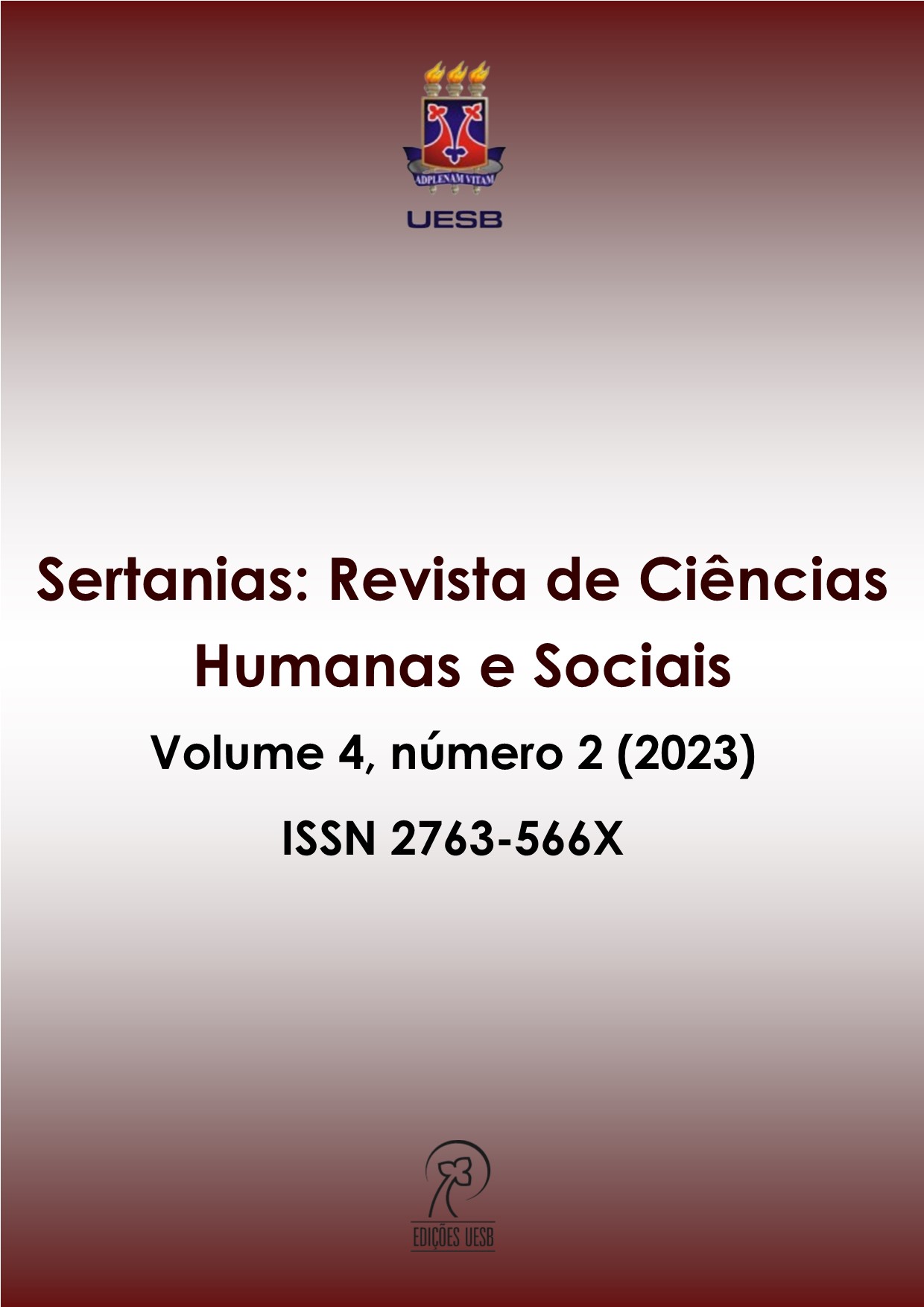The party as a space of sociality: knowledge and celebrations in the rural black community of Mulungu de Boninal - Bahia
DOI:
https://doi.org/10.22481/sertanias.v4i2.13791Keywords:
Belongingness, Festivity, SociabilityAbstract
A festive event becomes a privileged field for understanding the importance of the different forms of sociability which reveal cultural, belongingness and identity marks of a people in their way of acting, thinking, celebrating, being and being in the world. From this perspective, our objective is to understand the party as a space for sociability, for parties are understood as a social practice aimed at promoting and organizing the mechanisms that establish the individual's relationship with their culture, with a view to creating the necessary conditions to celebrating, and to relate individually and collectively in a given social context. In this sense, ethnographic research was my methodological choice, since it seems to be the path that best reflects the daily routine and special events that lead us to an understanding of the networks of meanings between the party and the “celebration mode” and of collectivity, the beliefs, the ways of living that are shared by the subject and with his social group. Therefore, celebrating, commemorating means, above all, on the gathering of people who come together for the same purpose, in which the beginning of the party appropriately constitutes itself through different paths or perspectives, because for each of those involved (the reveler, the visitor, the party-goer, the promise-giver, the devotee, the local resident, the researcher) is aroused by interests and subjective perspectives, revealing different meanings, hence the polysemy promoted by or by the word party.
Downloads
References
ALBUQUERQUE, Wlamyra R.de; FILHO, Walter Fraga. Uma história do negro no Brasil. Brasília: Fundação Cultural Palmares, 2006.
AMARAL, Rita. As mediações culturais da festa. Revista Mediações. Londrina, v.3, n.1, p. 13-22, Jan./Jun., 1998.
AMON, Denise; MENASCHE, Renata. Comida como Narrativa da Memoria Social. In: Sociedade e Cultura. Vol. 11, nº 1, jan/jun, 2008. p. 13-21.
BOURDIEU, Pierre. A economia das trocas simbólicas. Trad. Sergio Miceli. São Paulo: Perspectiva, 2007.
BRANDÃO, Carlos Rodrigues. Prece e Folia: festa e romaria. Aparecida, SP: Ideias & Letras, 2010.
CERTEAU, Michel de et al. A invenção do cotidiano: morar, cozinhar. 12.ed,.Trad. Ephraim F. Alves e Lúcia Endlich Orth. Petrópolis: Vozes, 2013.
CEZAR, Lilian Sagio. Saberes contados, saberes guardados: a polissemia da congada de São Sebastião do Paraíso, Minas Gerais. Horizontes Antropológicos. Porto Alegre, ano 18, n. 38, p. 187-212, jul./dez. 2012.
DA MATTA, R. Sobre o simbolismo da comida no Brasil. O correio. Rio de Janeiro, v. 15, n. 7, p. 22, julho de 1987.
DEL PRIORE, Mary. Festas e Utopias no Brasil. São Paulo: Brasiliense, 2000.
DURKHEIM, Émile. As formas elementares de vida religiosa. 3ed. São Paulo: Paulus, 2008.
FERRETTI, Sergio F. Estudos sobre festas religiosas populares. In: MIRANDA, Nadja e RUBIM, Linda (Orgs.). Estudo da Festa. Salvador: Edufba, 2012. (Coleção CULT; n.11).
MACIEL, Maria Eunice. Cultura e Alimentação ou O Que Tem a Ver os Macaquinhos de Koshima Com Brillat-Savarin? Horizontes Antropológicos. Vol. 7, nº 16, p.145-156. jul./dez. 2001.
MALINOWSKI, Bronislaw. Argonautas do Pacífico Ocidental. Trad. Anton P. Carr. São Paulo: Abril Cultural, 1978.
MAUSS, Marcel. Ensaio sobre a Dádiva. In: _____. Sociologia e Antropologia. Trad. Paulo Neves. São Paulo: Cosac Naity, 2003.
PEREZ, Léa Freitas. Antropologia das efervescências coletivas. Dionísio nos trópicos: festa religiosa e barroquização do mundo – Por uma antropologia das efervescências coletivas. In: PASSOS, Mauro (Org.). A festa na vida: significado e imagens. Petrópolis. Rio de Janeiro: Vozes, 2002.
REQUENA SANTOS, Félix. Amigos y Redes Sociales: elementos para una sociología de la amistad. Madri: Siglo XXI de España Edutores, 1994.
SIMMEL, G. Sociologia. MORAES FILHO, Evaristo (Org). Grandes Cientistas Sociais. São Paulo: Ática, 1983.
SOUZA, Marina Mello e. Catolicismo negro no Brasil: Santos e Minkisi, uma reflexão sobre miscigenação cultural. Afro-Ásia, n. 28, p. 125-146, 2002.
TINHORÃO. José Ramos. Cultura Popular: temas e questões. São Paulo: Ed.34, 2001.
WEBER, Franz. Celebrar a vida: A cultura da festa nas Comunidades Eclesiais de Base (CEBs). In: PASSOS, Mauro (Org.). A festa na vida: significado e imagens. Petrópolis, Rio de Janeiro: Vozes, 2002.
Downloads
Published
How to Cite
Issue
Section
License
Copyright (c) 2023 Sertanias: Revista de Ciências Humanas e Sociais

This work is licensed under a Creative Commons Attribution 4.0 International License.






